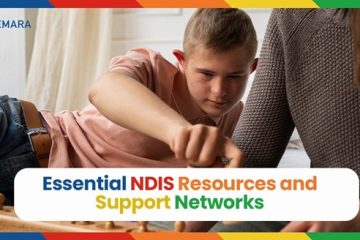Online study tools have rapidly become an integral part of educational systems worldwide. They offer students unprecedented access to a variety of resources, making learning more flexible and engaging. These tools cater to diverse learning styles and provide an interactive way to absorb and retain information. As education evolves, the incorporation of digital resources has been crucial in helping students achieve their academic goals. By leveraging these tools, students can study more efficiently, understand complex topics better, and perform well in their exams. This article delves into how online study tools empower students, focusing on their key features, their impact on student engagement, and the benefits of personalized and collaborative learning.
Key Features of Effective Study Platforms
Effective study platforms are characterized by several key features that enhance the learning experience. First, they offer a wide range of resources, including videos, interactive quizzes, and comprehensive notes, allowing students to engage with the material in multiple ways. Accessibility is another critical feature; students can access these platforms anytime and anywhere, which is particularly beneficial for those with busy schedules or varying study habits.
Moreover, effective study tools provide personalized learning experiences. Adaptive learning algorithms assess a student’s strengths and weaknesses, tailoring content to meet individual needs. This customization helps students focus on areas where they need improvement, optimizing their study time. Additionally, many platforms include collaborative tools, such as discussion forums and group study options, fostering a sense of community and encouraging peer-to-peer learning. These features collectively create a dynamic and supportive learning environment that can significantly enhance academic performance.
How Digital Resources Enhance Student Engagement
Digital resources play a vital role in enhancing student engagement by making learning more interactive and enjoyable. Interactive elements such as quizzes, flashcards, and simulations turn passive learning into an active process. This interactivity not only makes learning more engaging but also aids in better retention of information. Students are more likely to remember concepts they have actively participated in rather than those they have passively read or listened to.
Furthermore, digital resources often incorporate multimedia elements like videos, animations, and infographics. These visual and auditory tools can simplify complex concepts, making them easier to understand and more appealing. For example, a video demonstration of a scientific experiment can be far more illustrative than a textual description. Additionally, the ability to track progress and receive immediate feedback keeps students motivated and informed about their learning journey. By continuously engaging with the content in diverse ways, students can maintain their interest and improve their academic outcomes.
Comparing Traditional vs. Digital Study Methods
The debate between traditional and digital study methods continues as technology becomes more ingrained in education. Traditional study methods, such as reading textbooks, taking handwritten notes, and attending in-person lectures, have been the cornerstone of education for centuries. These methods offer a tactile and direct approach to learning, which some students find comforting and effective. However, they can be limited by their static nature and lack of interactivity.
In contrast, digital study methods offer a more dynamic and flexible approach. Online platforms provide access to a vast array of resources, including videos, interactive exercises, and real-time feedback. This variety caters to different learning styles and keeps students engaged. Additionally, digital tools can be accessed anywhere, making it easier for students to study at their own pace and on their own schedule. While traditional methods offer consistency and a proven track record, digital methods bring adaptability and a wealth of resources that can enhance the learning experience. Ultimately, the best approach may combine both traditional and digital methods, utilizing the strengths of each to support diverse learning needs.
Personalizing Education: Customizable Learning Experiences
Personalized education through customizable learning experiences is transforming how students approach their studies. Online study tools enable this by offering a range of resources tailored to individual needs. For instance, platforms provide personalized study notes and lecture notes that adapt to a student’s learning pace and areas of interest. This customization ensures that students are not overwhelmed by irrelevant information and can focus on what truly matters to them.
Study guides and exam prep resources are also crucial in personalizing education. These tools analyze students’ performance and highlight areas requiring more attention, allowing for targeted revision. This focused approach helps in retaining key concepts and performing better in exams. Additionally, study help resources for university students, such as interactive tutorials and one-on-one tutoring sessions, offer tailored support that addresses specific academic challenges.
Moreover, the flexibility of accessing study material anytime and anywhere ensures that students can integrate learning into their daily lives seamlessly. Whether it’s reviewing lecture notes before a big exam or using study help resources to understand a difficult topic, customizable learning experiences make education more efficient and effective. By leveraging these tools, students can create a personalized study plan that maximizes their academic potential.
Expert Tips for Maximizing the Use of Online Study Tools
Maximizing the benefits of online study tools requires strategic approaches and effective utilization. Here are some expert tips to help students make the most out of these resources:
- Set Clear Goals: Before diving into study sessions, set specific, achievable goals. Whether it’s mastering a particular topic or completing a set of practice questions, having clear objectives helps maintain focus and direction.
- Create a Study Schedule: Consistency is key. Establish a regular study routine that incorporates the use of online tools. This ensures steady progress and prevents last-minute cramming.
- Leverage Interactive Features: Take full advantage of interactive elements like quizzes, flashcards, and simulations. These tools not only make studying more engaging but also reinforce learning through active participation.
- Use Analytics for Improvement: Many online platforms offer analytics that track your performance and identify areas for improvement. Use this data to tailor your study sessions and focus on weak points.
- Join Online Study Groups: Collaborative learning can significantly enhance understanding. Participate in online forums or study groups to exchange ideas and get different perspectives on the material.
- Regularly Update Resources: Keep your study materials current. Online tools often update their content, so ensure you’re using the latest versions for the most relevant information.
- Balance Digital and Traditional Methods: While online tools are highly beneficial, combining them with traditional study methods can provide a more well-rounded learning experience. For instance, handwritten notes can aid memory retention alongside digital resources.
By implementing these strategies, students can optimize their use of online study tools, making their learning process more efficient and effective.



